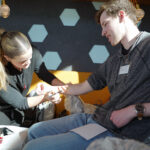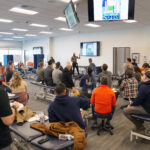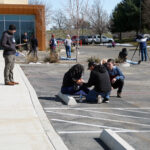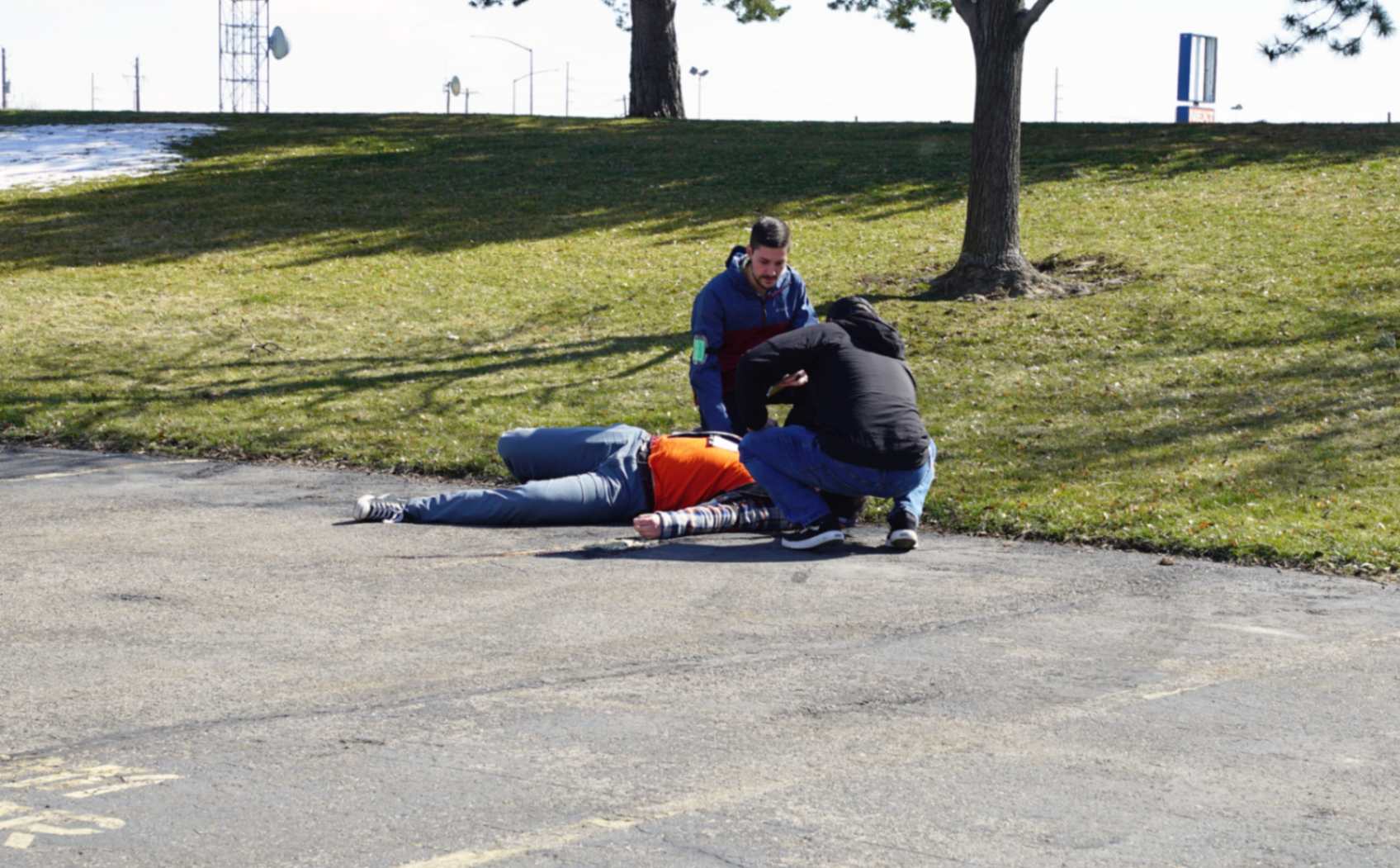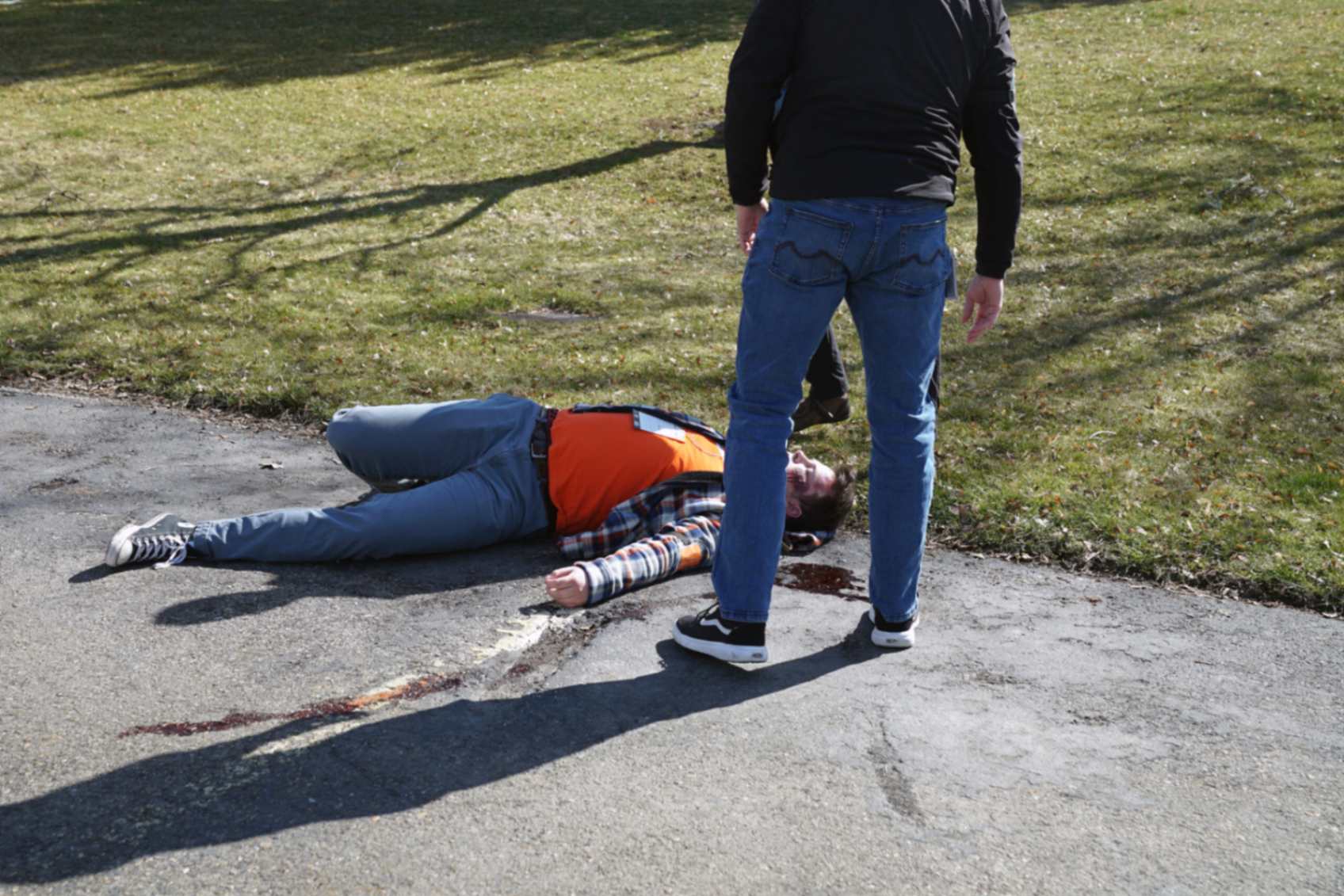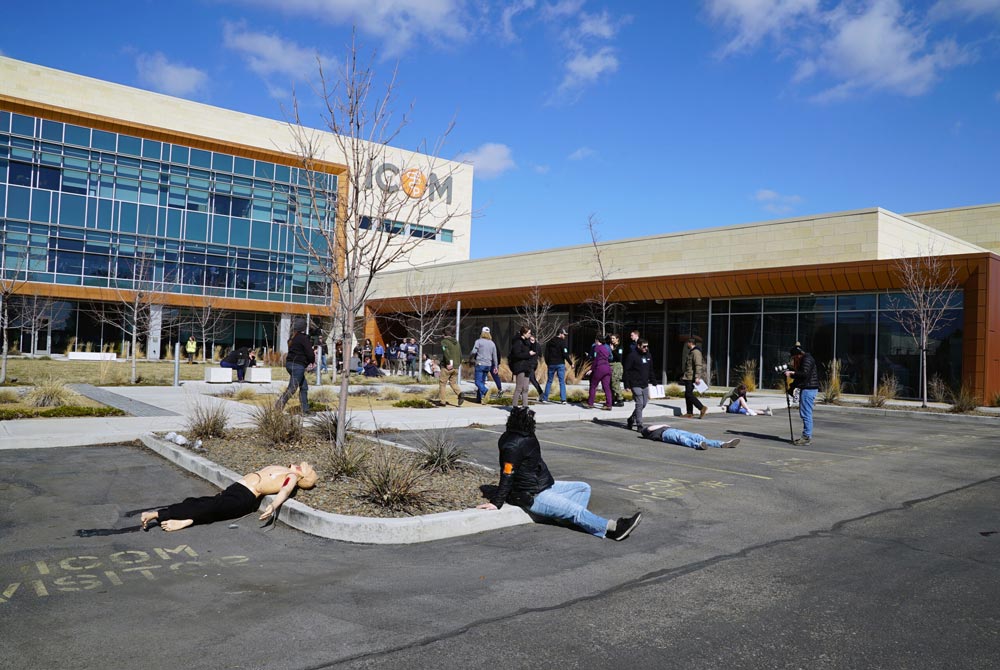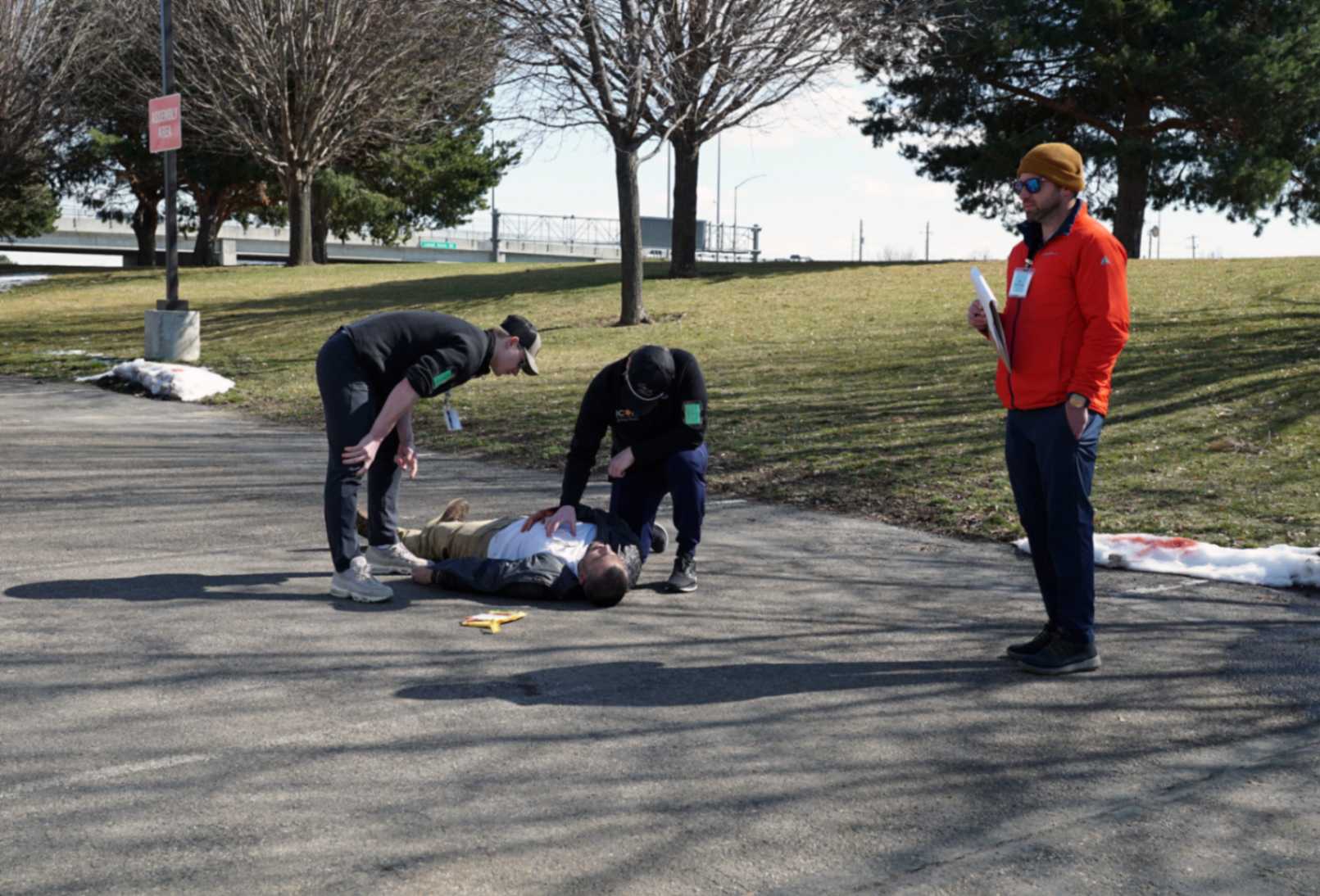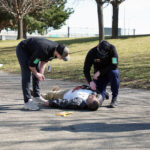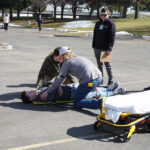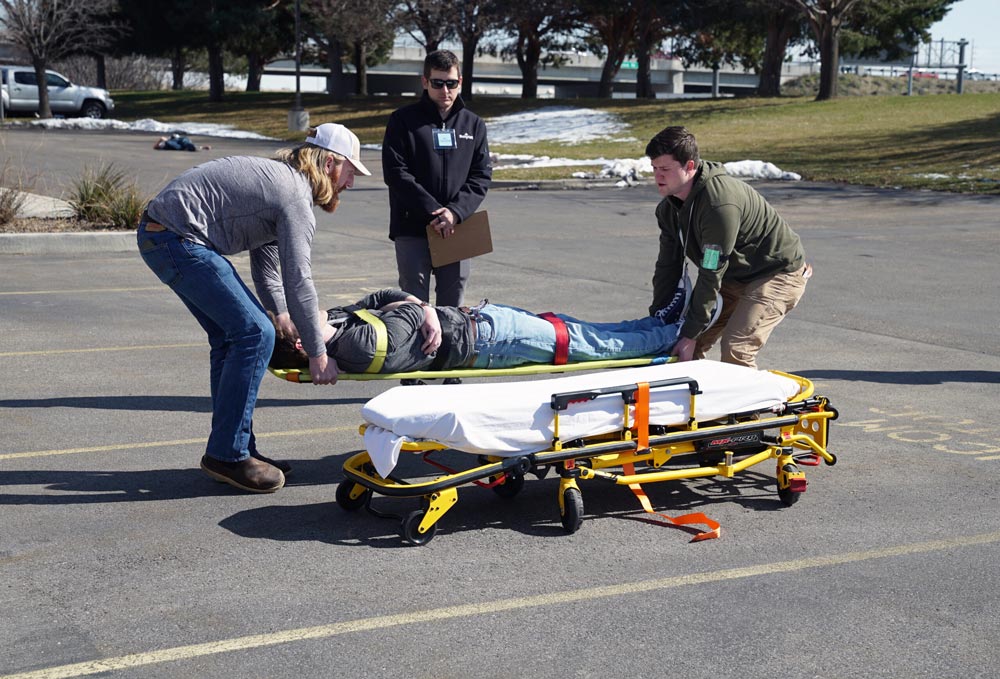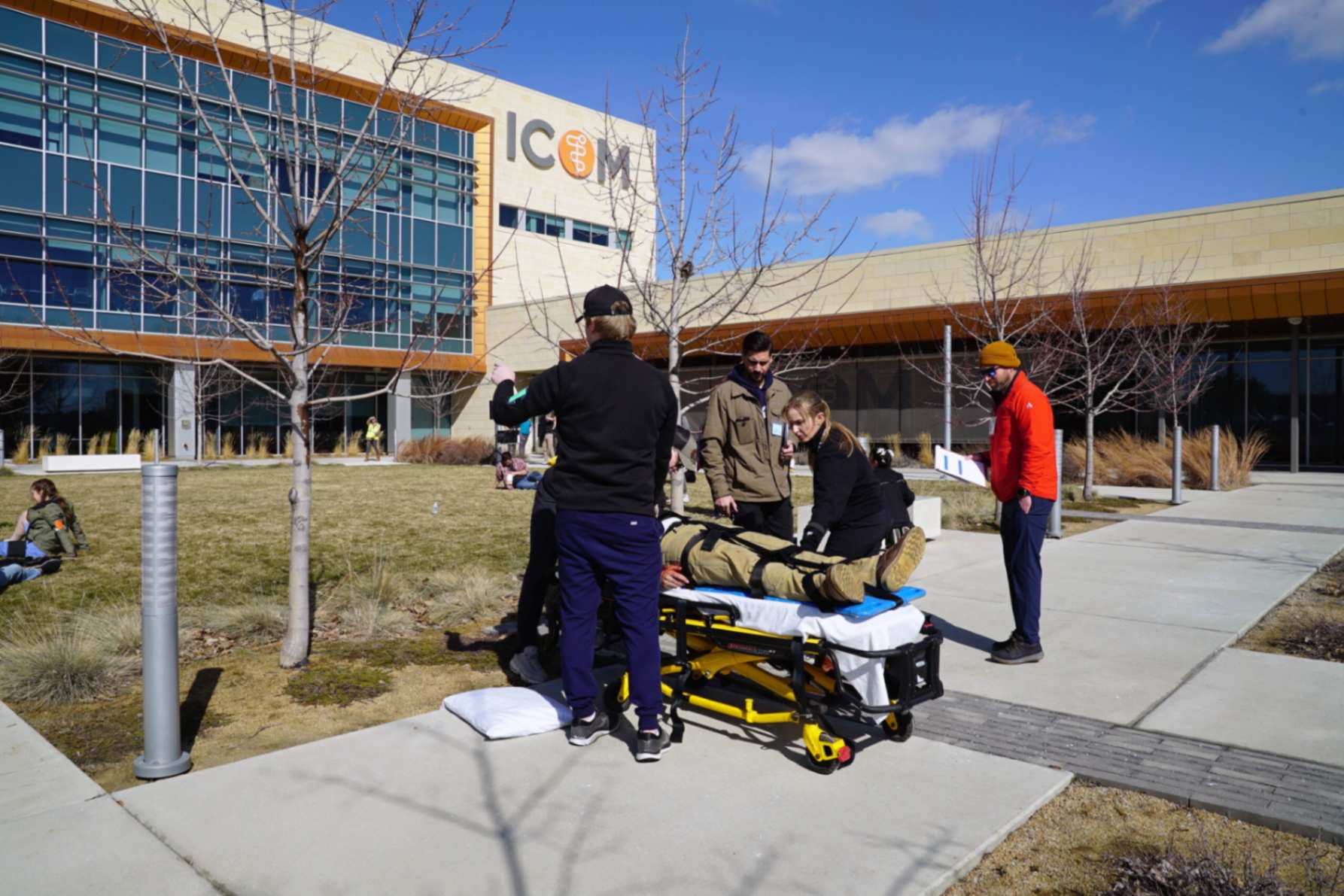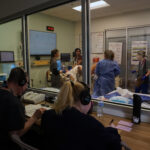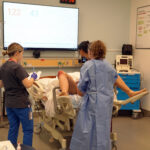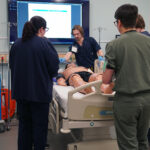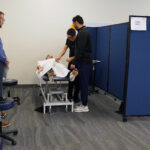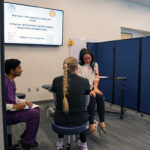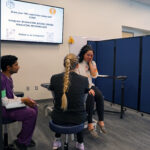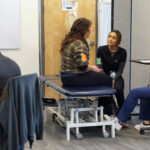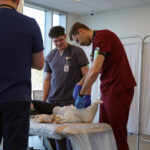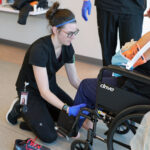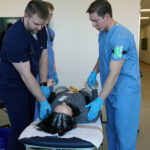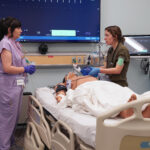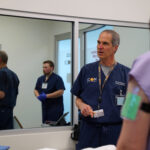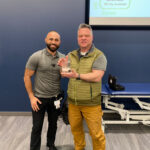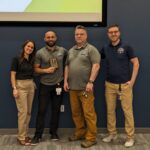The Idaho College of Osteopathic Medicine hosted its largest simulation event on campus on Friday, March 8. This simulated, full-scale, mass casualty incident (MCI) training exercise brought together the College’s student physicians, clinical faculty and support staff, as well as representatives from the Idaho Medical Academy, and cosmetology students from Paul Mitchell the School’s Boise and Nampa locations.
Organized by ICOM’s Emergency Medicine Organization, the training exercise involved approximately 60 “players” and 15 controllers/evaluators, as well as 20 simulated patients with moulage injuries and full patient profiles ranging from walking wounded to immediate treat and transport. In the large-scale scenario — in this case, a music festival gone awry — multidisciplinary teams of responders will work together to triage, treat and determine transport priority of these patients across a sprawling, campus-wide, incident scene.
“We often think about mass shootings when it comes to MCIs; but the reality is, MCIs can take on many forms and can happen at any time, without notice,” said Student Doctor Mohammad Abuakar, a third-year student at ICOM and President of the College’s Emergency Medicine Organization. “In fact, COVID-19 resulted in one of the largest MCIs in the world just a few years ago. These events overwhelm resources and truly require everyone’s help to overcome. It is imperative that we expose our future physicians to MCIs so that they know how to properly manage one within the hospital and support our first responders in the process.”
Training events such as this one are vital to the education of health professionals and community members alike. An evolving national climate demands a team of healthcare professionals be uniquely prepared for challenges such as mass shootings, extreme weather phenomena, and emergent pathogens, to name a few. These trends place added emphasis on the importance of improving physician preparedness for mass casualty incidents.
“If you work at a hospital that has an emergency department or intensive care unit attached to it, this is a very real thing that we have to think about and be ready for,” said Dr. Richard Mcdonald, Assistant Professor of Emergency Medicine at ICOM. “This is awesome that our students are getting this experience. They’re student doctors now, but they are officially medical professionals who will be saving lives.”

